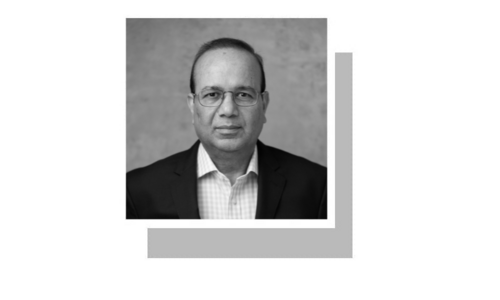ISLAMABAD, Nov 23: Endorsing President General Musharraf’s reasons such as rise in terrorism and judicial activism for imposing the state of emergency and suspending fundamental rights, the post-PCO Supreme Court on Saturday validated all actions taken by him in his capacity as Chief of Army Staff.
However, the court called for revoking the emergency rule at the earliest and ending the period of constitutional deviation.
The order was announced by Chief Justice Abdul Hameed Dogar, head of the seven-member SC bench, hearing identical petitions challenging the imposition of the state of emergency and the Provisional Constitution Order.
The verdict is the first formal validation of the army chief’s action to impose emergency and govern through his own PCO.
But in the opinion of some senior lawyers, it hardly came as surprise because the entire Supreme Court bench, including the chief justice, had taken the oath under the PCO which in a way amounted to accepting the army chief’s actions.
What they said surprised them was the emphasis the verdict laid on judicial activism of the recent past which in a way amounted to criticising the ‘brother judges’, particularly those who had refused to take the oath under the PCO.
Agreeing to two potent reasons -- terrorism and judicial activism – General Pervez Musharraf for the proclamation of emergency, the bench found fault with some of the brother judges, who stood deposed on Nov 3, and criticised them for transgressing the constitutional limits, an observation which some legal experts said was bound to dampen the course of judicial activism in the country for years to come.
The court disposed of two identical petitions of Tikka Iqbal Mohammad Khan and Watan Party chairman Barrister Zafarullah Khan challenging the emergency rule and the PCO, removal of judges of the superior courts and curbs on the media. It ruled that circumstances were such that running the government in accordance with the Constitution had become impossible and for which the Constitution had no remedy.
It held that the situation on July 5, 1977, and Oct 12, 1999, was similar to the present circumstances and warranted the proclamation of emergency. It ordered President Musharraf, the federal government and the Election Commission to ensure fair, free and transparent elections.
“The court has given an independent and balanced judgment,” Attorney General Malik Mohammad Qayyum remarked soon after the announcement of the verdict in a courtroom where a few lawyers, some journalists and security personnel were present.
When his attention was drawn to the issue of fundamental rights on which the court said nothing contrary to his expectations, the attorney general promptly said: “But the Constitution has been declared the supreme law of the land.”
Prominent lawyer Fakhruddin G. Ibrahim said he was surprised by the judgment, adding that the judiciary was no longer there to defend and protect the Constitution, but the PCO to which they were bound by their oath.
The Pakistan Bar Council through a resolution appealed to political parties, professionals, members of civil society and the people at large to launch a campaign against the “so-called fraudulent electoral exercise” and join lawyers in their struggle for restoration of the pre-Nov 3 judiciary.
The court after hearing Barrister Zafarullah for some time at the outset retired for over two hours to assemble again and announce the short order. “Since the old legal order has not been completely suppressed or destroyed, therefore, this is a case of constitutional deviation for a limited transitional period,” the order said.It added that constitutional amendments could be resorted to only if the Constitution failed to provide a solution for the attainment of the declared objectives of the Chief of Army Staff, but without affecting the salient features of the Constitution, namely independence of judiciary, federalism and parliamentary form of the government blended with Islamic provisions.
The court held that the superior courts would continue to have the powers of judicial review to judge the validity of any act or action of the army chief or the president, notwithstanding the ouster of their jurisdiction by the extra-constitutional measures.
It said that chief justices and judges of the superior courts (Supreme Court of Pakistan, Federal Shariat Court and the High Courts) were subject to accountability only before the Supreme Judicial Council (SJC) in accordance with the procedure laid down in Article 209 of the Constitution.
“The chief justices and judges of the superior courts, who have not been given, and who have not made, oath under the Oath of Office (Judges) Order 2007, have ceased to hold their respective offices on Nov 3. Their cases cannot be re-opened being hit by the doctrine of past and closed transaction.”
The order said: “The proclamation of emergency should be revoked by the president and/or the army chief so that the period of constitutional deviation was brought to an end. However, the Supreme Court retained its power to re-examine at any stage the continuation of the state of emergency if the circumstances so warrant.
“The 1973 Constitution still remains to be the supreme law of the land albeit certain parts thereof have been held in abeyance in the larger interest of the country and the people of Pakistan.
“The extra-constitutional steps of proclamation of emergency of Nov 3, the Provisional Constitution Order No 1 of 2007, the Provisional Constitution (Amendment) Order 2007, the Oath of Office (Judges) Order 2007 and the President’s Order No 5 of 2007 are hereby declared to have been validly made by the COAS/President subject to the condition that the country shall be governed, as nearly as may be, in accordance with the Constitution. All acts and actions taken for the orderly running of the State and for the advancement and good of the people are also validated.”
In the absence of parliament, the order gave Gen Musharraf the power to amend the Constitution in the larger public interest and the safety, security and integrity of Pakistan under the principle of salus populi suprema lex (welfare of the people to be supreme law). Gen Musharraf can perform acts or legislative measures which are in accordance with, or could have been made under the Constitution. He can also perform all acts which tend to advance or promote the good of the people that required to be done for ordinary orderly running of the state.
“The court noted with concern that in the recent past the entire Pakistan was afflicted with extremism, terrorism and suicide attacks, using bombs, hand grenades, missiles, mines, including similar attacks on the armed forces and law-enforcement agencies.
“The situation reached climax on Oct 18 when in a similar attack on a public rally, at least 150 people were killed and more than 500 seriously injured.
The extremists and terrorists even resorted to abduction of foreigners, which badly impaired the image of Pakistan in the comity of nations and adversely affected its economic growth. Likewise the situation in Islamabad and different places in the NWFP, Balochistan and tribal areas was analogous to ‘a state within the state’. Unfortunately, no effort by the government succeeded in curbing extremism, terrorism and suicide attacks while former prime minister Shaukat Aziz apprised the president of the situation through his letter of Nov 3,” the order said.
The court ruled that the Constitution was based on the principle of trichotomy of powers in which all the three organs of the state -- the legislature, the executive and the judiciary -- were required to perform their functions and exercise their powers within their specified sphere.
“Unfortunately, some members of the superior judiciary by way of judicial activism transgressed the constitutional limits and ignored the well-entrenched principle of judicial restraint. Thousands of applications involving individual grievances were being processed as suo motu cases ostensibly in the exercise of power under Article 184(3) of the Constitution, which provision is resorted to the enforcement of fundamental rights involving questions of law of general public importance,” it added.
The order said: “Instances of transgression of judicial authority at large-scale may be found in the cases of determination of prices of fruits, vegetables and other edibles, suspension and transfers of government officials, frequent directions to enact particular laws, stoppage of various development projects, such as New Murree City, Islamabad Chalets, Lahore Canal Road and many more.
“They rendered the state machinery, particularly legislative and executive branches of the government paralysed and nugatory and made ineffective the institution of the Supreme Judicial Council set up under the Constitution for the accountability of the members of the superior judiciary.
“The sum total of the circumstances led to a situation where the running of the government in accordance with the provisions of the Constitution became impossible for which the Constitution provided no remedy or satisfactory solution.
“There was a strong apprehension of disastrous consequences that would have followed in case the action of Nov 3 was not taken by the Chief of Army Staff/President. The situation which led to the issuance of proclamation of emergency of Nov 3 was similar to the situation which prevailed in the country on July 5, 1977, and October 12, 1999, warranting the extra-constitutional steps, which had been validated by the Supreme Court of Pakistan in 1977 Begum Nusrat Bhutto and 2000 Syed Zafar Ali Shah cases in the interest of the State and for the welfare of the people, as also the fact that the Constitution was not abrogated, but merely held in abeyance.”











































Dear visitor, the comments section is undergoing an overhaul and will return soon.